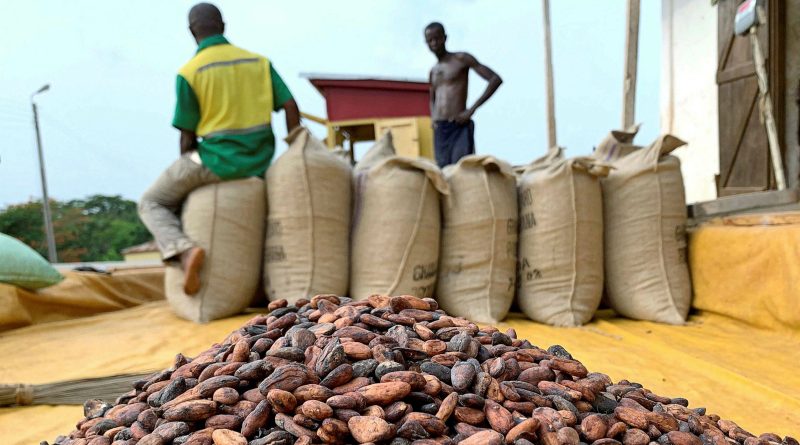Cocoa accounts for 29% of Nigeria’s total agricultural exports rising to N1.2trn
Nigeria’s cocoa industry has recorded a jump in exports in the last quarter of 2024, rising from N171 billion in Q4 2023 to N1.2 trillion.
Senior Special Assistant to the President on Agribusiness and Productivity Enhancement, Dr. Kingsley Uzoma, disclosed this at the Nigeria–EU Cocoa Roundtable on EUDR Compliance, described cocoa as a strategic non-oil export commodity is driving the nation’s shift away from petroleum dependency.
Cocoa now accounts for roughly 29per cent of Nigeria’s total agricultural exports and 5.6per cent of non-oil exports, with over 300,000 smallholder farmers producing 80per cent of the national output.
In the 2023/2024 season, Nigeria produced 320,000 tons, aiming to reach 500,000 tons by 2025 through targeted interventions.
The roundtable focused on compliance with the European Union Deforestation Regulation (EUDR), which from December 2025 will prohibit the import of cocoa linked to deforestation. The EUDR requires full supply chain traceability, due diligence, and proof of deforestation-free production aligning with Nigeria’s green economy and climate change goals.
Dr. Uzoma said compliance could unlock opportunities in traceability technology, blockchain systems, and satellite mapping, while boosting farmer incomes and productivity.
According to him, the government is also working to harmonize sector data, establish a national traceability system, and engage agencies including the Nigeria Customs Service, FIRS, and NASDRA.
Minister of Industry, Trade and Investment Dr. Jumoke Oduwole stressed that with the EU accounting for over 60per cent of Nigeria’s cocoa exports, compliance is an economic, environmental, and developmental imperative and part of President Bola Tinubu’s $1 trillion economy target under the Renewed Hope Agenda.
Deputy Director of Cocoa at the Federal Ministry of Agriculture and Food Security, Ajayi Olutobaba, who represented the minister, Senator Abubakar Kyari, said the summit provided a unique platform for stakeholders in the cocoa value chain to align their activities with the National Task Force on EUDR compliance, inaugurated on October 8, 2024.
“Nigeria has the capacity to meet up with this deadline because most of our exporters are already compliant.
“Our task now is to harmonize the data, warehouse it, and have a national traceability and sustainability system. Once data sovereignty, security, ownership, and acceptance are guaranteed by the Federal Government, presenting this information to the European Union will be straightforward,” Olutobaba said.
Sustainability Manager at Tulip Cocoa Processes Limited, Dr. Taiwo Osho, reaffirmed the company’s commitment to sustainable agriculture and traceability.
He said Tulip works closely with cocoa farmers, providing them with good agricultural practices and livelihood support programmes to meet EUDR requirements.
Osho noted that while Nigeria’s focus had shifted towards petroleum over the years, attention was now returning to cocoa and other agricultural exports. He stressed the need for government action to clearly demarcate protected areas to guide farmers and traders.
“Identifying boundaries is crucial because farmers are confused about where they can farm. If we want to strengthen production, we must intensify farming in designated areas and improve productivity. Nigeria has large tracts of land under cocoa, but yields remain low. Government should prioritize boosting productivity to maximize our potential,” he said.




